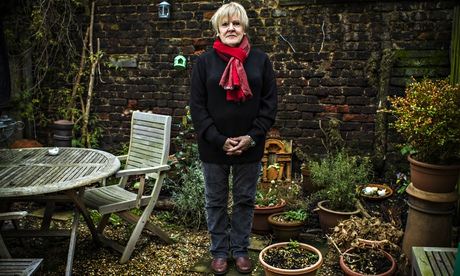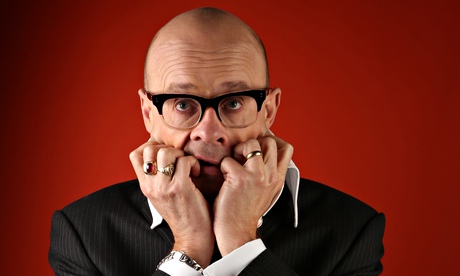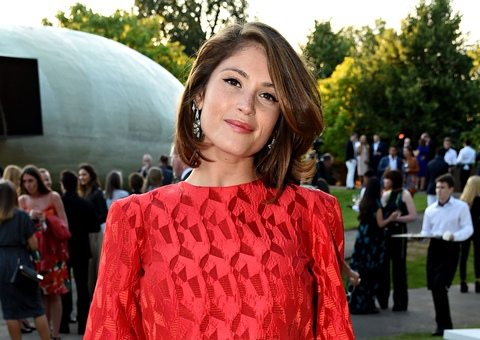The new Francis Crick Institute in London’s King’s Cross opens this summer, and by the time it reaches its full capacity later in the year will house 1,400 researchers and 400 support staff. Sir Paul Nurse, director and chief executive, describes it as “probably the biggest biomedical research laboratory building in the world”; others have affectionately dubbed it “Sir Paul’s Cathedral”. Nurse, who was president of the Royal Society until last year, has become one of the most celebrated scientists in Britain. Born to a working-class family in Norfolk, his career has led him from a Harrow grammar school to some of the world’s most prestigious biology and genetics laboratories and, in 2001, to the Nobel prize for medicine, for his work discovering “key regulators in the cell cycle”.
1 | Theatre
The Encounter at the Barbican
This knocked my socks off. It was directed and performed by Simon McBurney, telling the story of a man who encounters a jungle tribe in the Amazon. It was a very innovative aural experience: everybody in the audience had headphones and they played with the sound in a very sophisticated way until everything about the story – the jungle, the people he was describing, his own voice, his own movements – simply entered your head. It was completely extraordinary, quite apart from the virtuoso performance. Overall, I haven’t ever seen any theatre like it. The normal life of the man who encounters the tribe gradually falls away until he is essentially naked. It’s his encounter with these other peoples, with the primeval forest, and also maybe with his primeval self.
2 | TV
Follow the Money on BBC4
I don’t watch much television but I was seduced by this little Nordic noir from Denmark. It’s about a green company that, while apparently occupying a high moral ground, is actually totally corrupt. So it’s a mixture of financial crime, green politics, corporate greed and all sorts of subplots, as is often the case with these Nordic things. There’s a policeman who has a domestic crisis – it seems to me that Scandinavian policemen are all in the midst of domestic crises – and some small-time car thieves who have a certain charm. It’s slow burn, it’s hypnotic, and all the values are confused. Also, for some reason, each episode begins with all the main characters gradually being submerged underwater. I was very struck by it, but God knows what it meant.
3 | Museum
Sunken Cities: Egypt’s Lost Worlds at the British Museum
This exhibition told the extraordinary story of an Egyptian city at the mouth of the Nile that sank into the sea about 1,300 years ago. There was something very poignant about a whole city that had been lost for a thousand years, and you could see the fascinating fusion of culture that occurred under the Ptolemies: a strong Greek influence overlaid on the stiffness of the Egyptian tradition. It was a fantastic experience of exploration and discovery: you see photographs of these dramatic statues emerging from the murky water, and there the same statues are, five metres high and right in front of you.
I’m going to mention another exhibition because I like museums; this one was more personal to me because it coincides with my own childhood. Cosmonauts at the Science Museum was about the Russian contribution to the space race, before it was overwhelmed by the US. There was the back-up Sputnik 1, which astonished the world in 1957 and terrified the Americans, but the one that was most personal for me was Sputnik 2. It came across London in 1958 when I was nine years old and I remember chasing it down the road in my pyjamas and telling everybody as I ran that this was Sputnik 2.
4 | Fiction
The Noise of Time by Julian Barnes
This is a book about Shostakovich, who remained in Soviet Russia, unlike Stravinsky and Prokofiev. Barnes deals with how Shostakovich was able to survive as an artist under Stalin in really quite difficult times, particularly the 1930s: how he would fall in and out of favour, how he was terrified for his life, and how he managed his own creativity in that situation. It’s a very sensitive account of how art can be in conflict with naked political power, and in a more personal way, perhaps, of human survival against the odds. The message for me was that when we have freedom we should cherish it, because when you don’t have it you realise how terrible it can be.
5 | Art
Alexander Calder: Performing Sculpture at Tate Modern
I’ve come across Calder quite a lot. When I lived in New York and was president of Rockefeller University I had one of his mobiles in my office, so I got used to looking at it every day, twirling around. What I really liked about this exhibition, however, were his wire sculptures. They’re a bit like Picasso: a few simple flourishes, moulding the metal wires to produce images of people, primarily. They’re so playful, so light-hearted that it was, bluntly, joyous. You couldn’t help but look at them and smile.
Those playful images were right next to another room in the gallery, part of the permanent exhibition, of Rothko’s big colour canvases: completely tranquil and almost sublime. There was something about going from that tranquil, thoughtful room into this joyous place with all these rather amusing wire images. I don’t know if it was deliberate but it really worked for me.
6 | Music
I’ve been to a number of concerts by András Schiff, and he came to the Royal Society recently, after I was president. He played an amazing hour and a half or longer, nonstop, from memory, of course, of romantic sonatas from Beethoven, Mozart, Schubert and so on, and he has this extraordinary personality. He’s a brilliant player, with focus, energy and insight, real intelligence, but without flamboyance and without getting in the way of the performance. He’s compelling to watch, but his performance doesn’t distract you and I just completely entered into his world. Perhaps my favourite was the Beethoven Piano Sonata No 30. I’m quite a fan of Beethoven – there’s something monumental about it, even with a single instrument.











